Without a doubt, the Sanctuary of the Sacred Heart of Jesus / Mount of Santa Luzia (Santuário do Sagrado Coração de Jesus / Monte de Santa Luzia) is the top attraction in Viana do Castelo.
Towering above the city, the church commands incredible views of the Lima River, the city of Viana do Castelo, the port, and over the Atlantic Ocean.
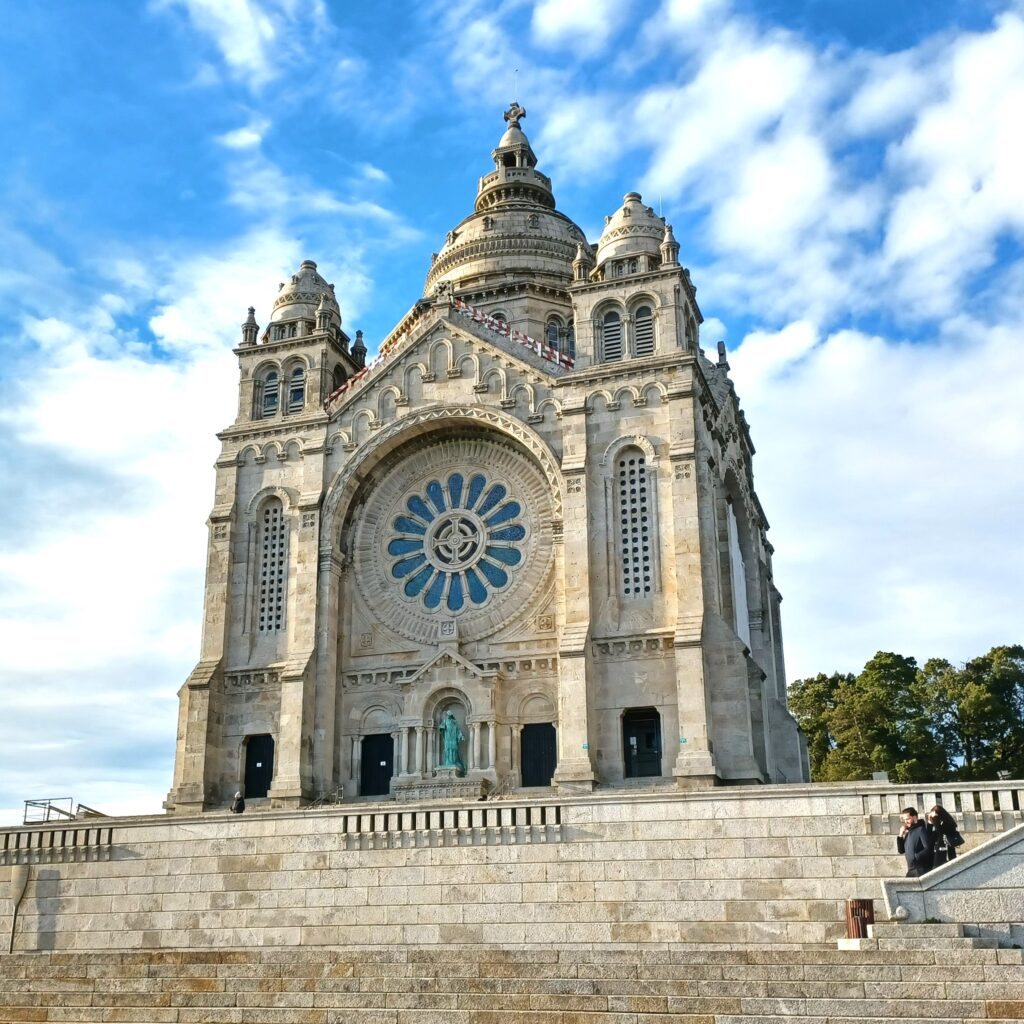
Sanctuary of the Sacred Heart of Jesus origin story
Since Medieval times, there has been a hermitage on Monte de Santa Luzia, patron saint of eyesight.
The story goes that at the end of the 19th century, Cavalry Captain Luís de Andrade e Sousa found that his eyesight was failing. He visited the small chapel on Monte de Santa Luzia and prayed to Saint Lucy. His eyesight restored, (how come we never hear about the people whose prayers weren’t answered in these stories?) he helped spearhead the construction of the Sanctuary of the Sacred Heart of Jesus beginning in 1904, with the project completed in 1959.Hard to believe this Gothic/Byzantine looking church was only finished 75 years ago.
The views from the church grounds are definitely spectacular, called some of the best in the world. But, the interior of the church isn’t all that interesting. It is free to enter and it’s worth a look for the stained glass, especially the front rose window which was made in Lisbon and shipped north to Viana.
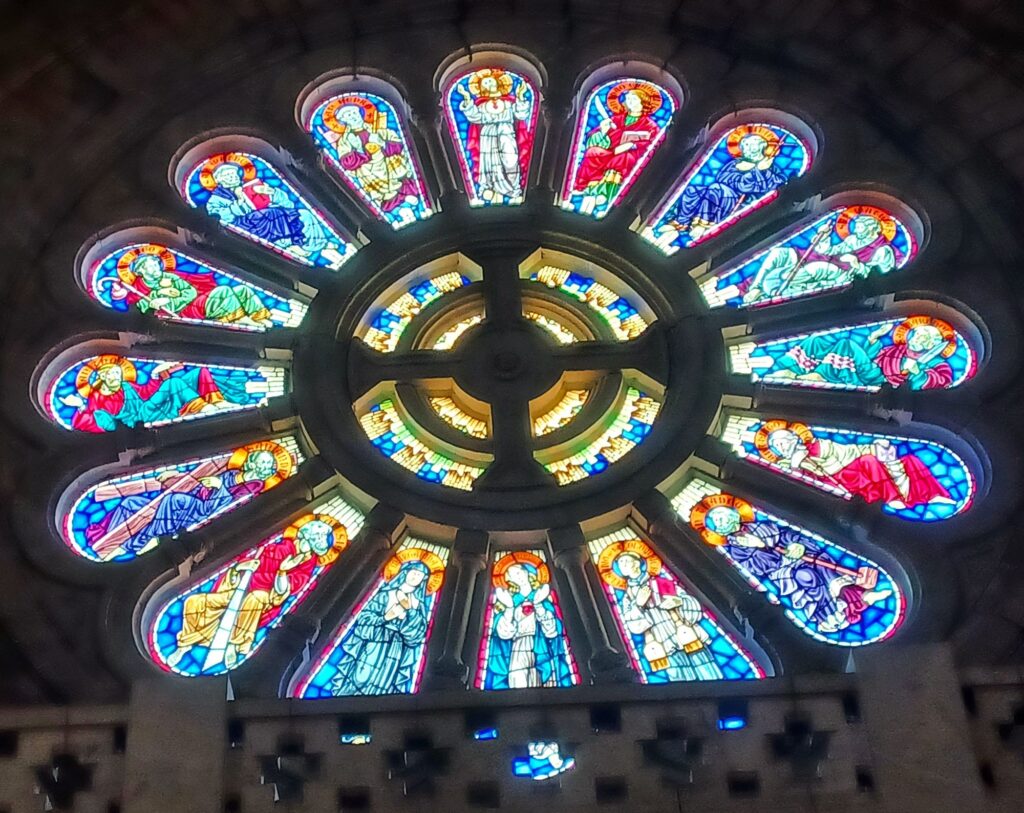
The best views are gained from the top of the church tower. To get to the tower you need to go outside the church and find the entrance on the side (entrance fee). Two hundred ever-increasing steps of claustrophobia lead to the tower with a windy outlook that lets you see Viana and miles and miles beyond. Not to be missed.
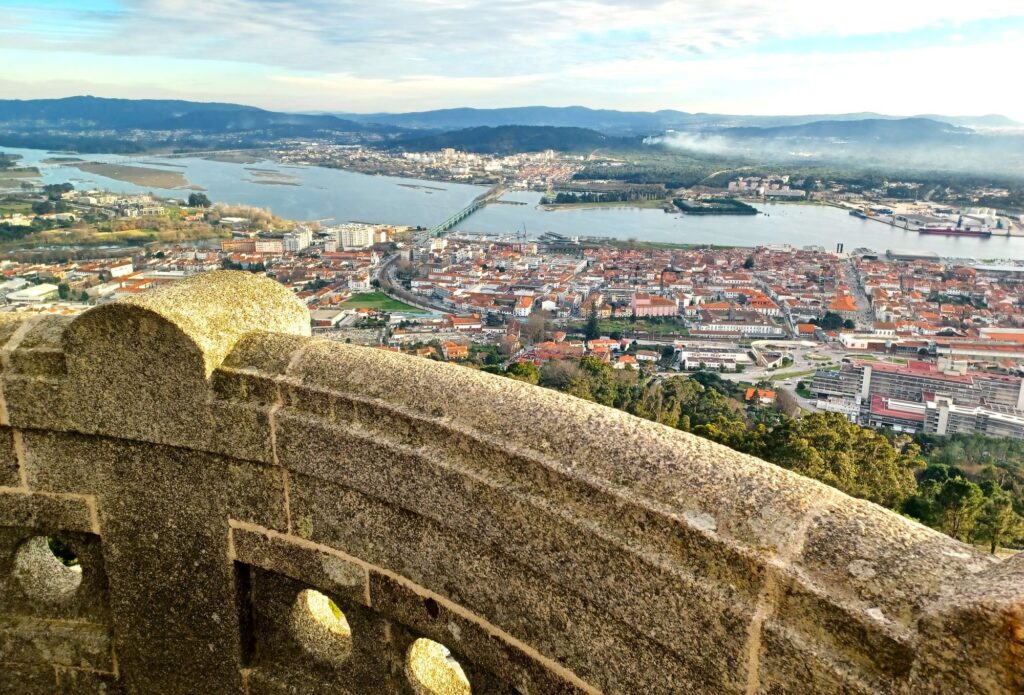
Citânia Santa Luzia
A short 15 minute walk from the Sanctuary of the Sacred Heart of Jesus is the archaeological site known as Citânia Santa Luzia.
Built around 500 BCE, the Iron Age settlement was thriving hundreds of years before the arrival of the Romans. The fortified city lasted well into the Roman and Visigoth occupations.
Exploring the site on raised walkways, you’ll see foundations of homes and the city’s wall as well as other structures. Excavation of the site began in the 19th century and only a third of the city has been uncovered. Much of the rest of the city lies under the modern roads and houses in the area. The construction of the Sanctuary of the Sacred Heart of Jesus / Mount of Santa Luzia also destroyed much of Citânia Santa Luzia.
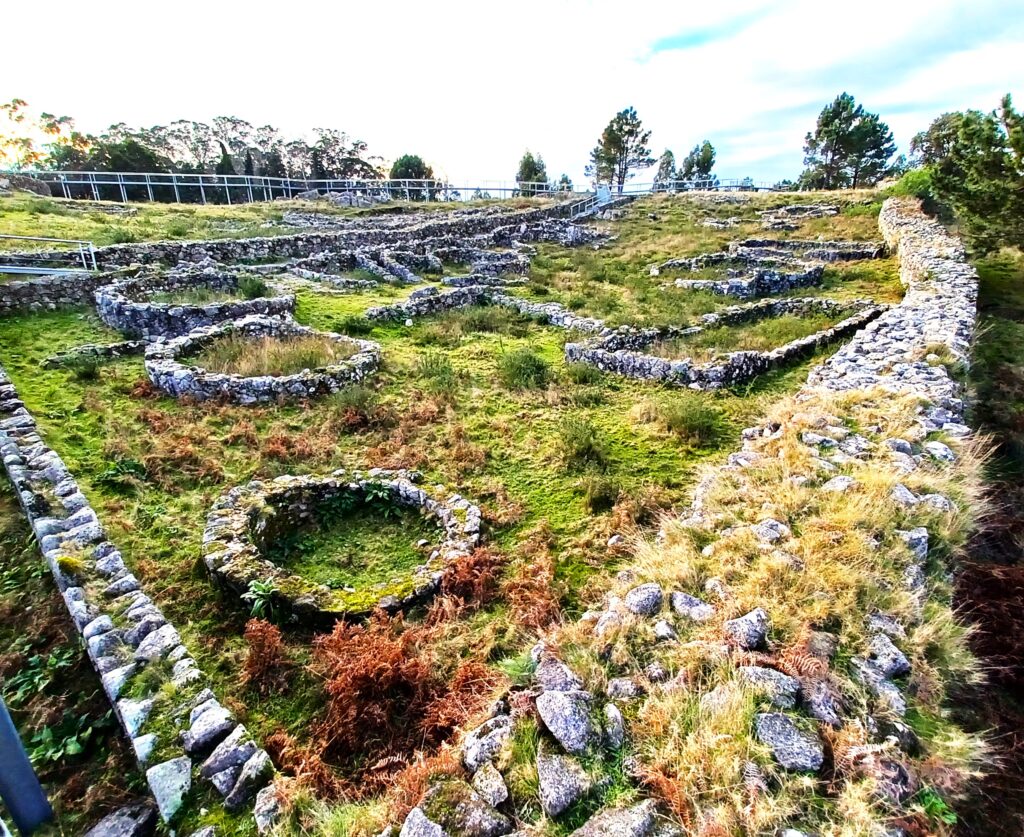
Unfortunately, there’s no signage to explain what you’re looking at. However, it’s still interesting to walk around and imagine what life was like here 2,500 years ago.
Getting to the Sanctuary of the Sacred Heart of Jesus
The Church is on the top of Santa Luzia hill and the climb is steep, but do-able. You can also drive, it’s about 2 miles to the top and there’s some parking outside the church.
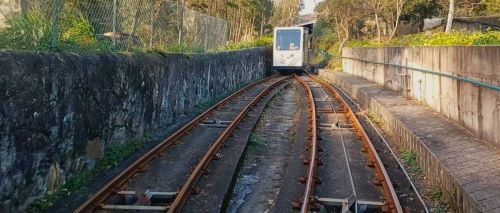
However, the most fun way to get up the hill is by taking the Elevador de Santa Luzia. The hundred year old funicular clatters and pulls the car to the top of Monte de Santa Luzia in about seven minutes. The Elevador de Santa Luzia is the longest funicular in Portugal, more than doubling the length of the second longest in Nazaré.
About the Author

Brent Petersen is the Editor-in-Chief of Destination Eat Drink. He currently resides in Setubal, Portugal. Brent has written the novel “Truffle Hunt” (Eckhartz Press) and the short story collection “That Bird.” He’s also written dozens of foodie travel guides to cities around the world on Destination Eat Drink, including in-depth eating and drinking guides in Portugal for Lisbon, Porto, Sintra, Évora, Braga, Loulé, Almada, Monsaraz, and Batalha. Brent’s podcast, also called Destination Eat Drink, is available on all major podcasting platforms.
